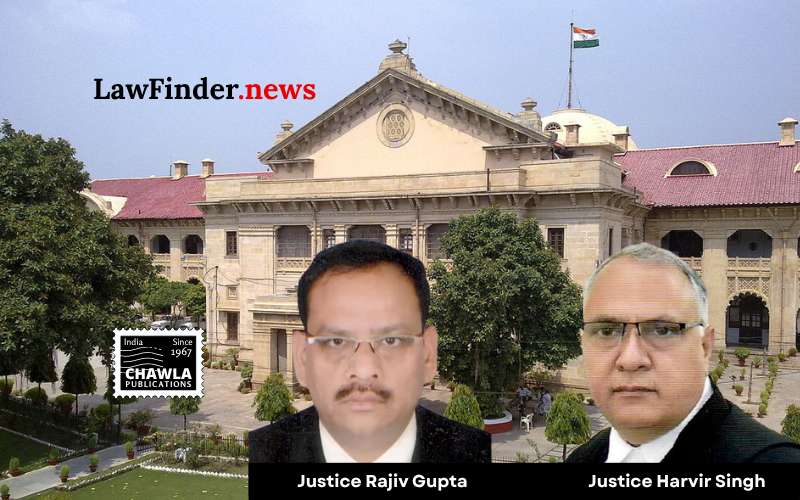The High Court finds trial court's judgment perverse, sentences the accused to life imprisonment and three years for tampering with evidence.
In a significant legal development, the Allahabad High Court has overturned the acquittal of Awadhesh Kumar and Mata Prasad, sentencing them to life imprisonment for murder and three years for evidence tampering. The bench, comprising Justices Rajiv Gupta and Harvir Singh, found the trial court's judgment in the 1982 case of Kusuma Devi's murder to be perverse and illegal, failing to appreciate the evidence on record.
The case, originating from an incident on August 2, 1982, involved the murder of Kusuma Devi, whose body was hastily cremated without informing her relatives or conducting a post-mortem. The prosecution, led by Jagdish Prasad, the deceased's father, alleged that the accused, including Awadhesh Kumar, her husband, had illicit motives and committed the murder.
Key prosecution witnesses, Shaqir Ali and Lakhan Singh, testified to witnessing the murder in torchlight. However, the trial court had previously dismissed their testimonies based on minor inconsistencies and the non-production of the torch as evidence.
The High Court scrutinized the trial court's decision, emphasizing the principles laid down by the Supreme Court, which allow reappreciation of evidence in appeals against acquittals. The court noted that the trial court had overlooked crucial evidence, such as the absence of a credible defense regarding the hurried cremation and the failure to inform the deceased's relatives.
The appellate court also criticized the defense's failure to produce a material witness, Hubbey Nai, who allegedly informed the deceased's family about her death. The non-production led to an adverse inference against the defense, further strengthening the prosecution's case.
The High Court condemned the trial court's reliance on alleged procedural lapses by the investigating officer as a ground for acquittal, stating that such lapses should not overshadow substantive evidence. The judgment highlighted societal issues of superstition and blind faith, noting their contribution to heinous crimes like the one in question.
Consequently, the High Court sentenced Awadhesh Kumar and Mata Prasad to life imprisonment under Sections 302/34 of the Indian Penal Code (IPC) for murder and three years under Section 201 IPC for tampering with evidence. The court ordered the accused to surrender within two weeks and instructed the trial court to take appropriate action if they fail to comply.
Bottom Line:
Appeal against acquittal - High Court has the power to reappreciate evidence in appeal against acquittal, but must adhere to the legal principles set by the Supreme Court. Evidence regarding the torchlight testimony, hasty cremation of the deceased without informing relatives, and lack of credible defense raised a strong presumption against the accused.
Statutory provision(s): Section 378 CrPC, Sections 302/34, 201 IPC, Section 114 Evidence Act.
State v. Awadhesh Kumar, (Allahabad)(DB) : Law Finder Doc Id # 2784986




